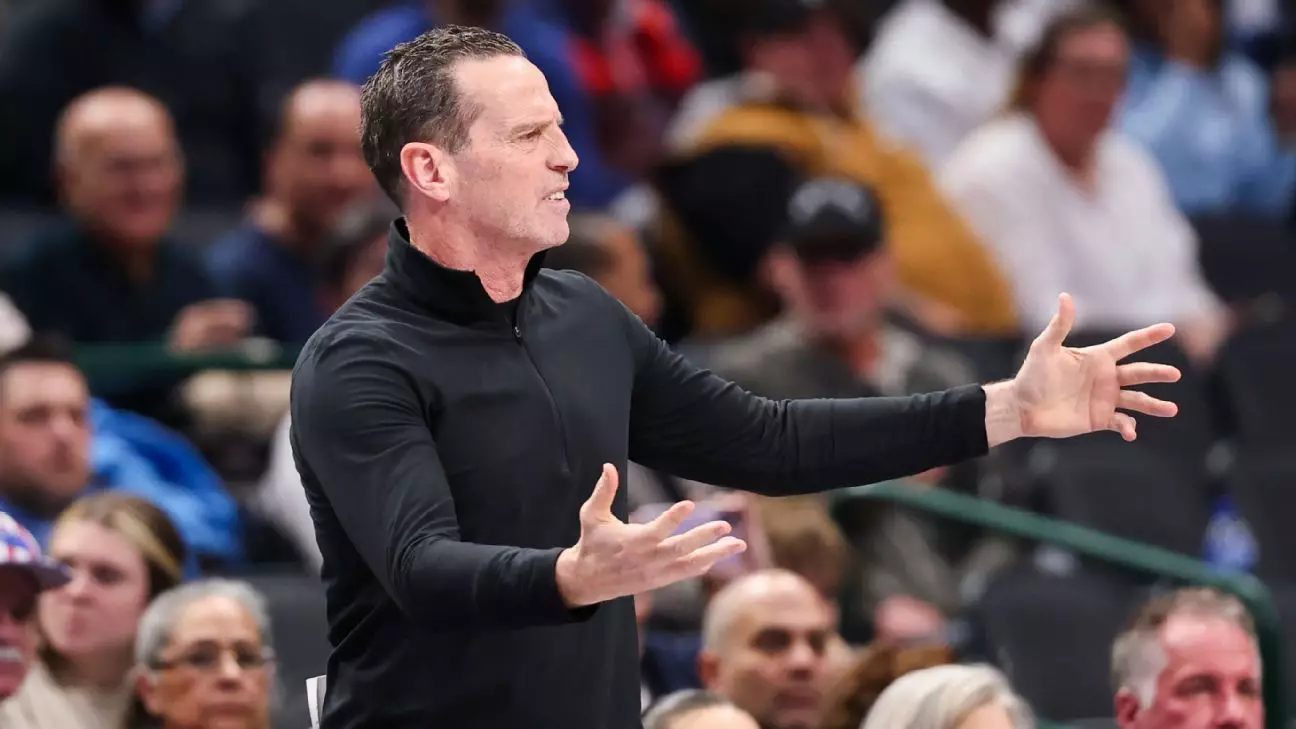In an electrifying contest that saw the Indiana Pacers edge out the Cleveland Cavaliers 120-119, the final moments were rife with controversy, confusion, and missed calls—common occurrences in sports that can have lasting ramifications. As the game reviewed its Progressive Report from the NBA, three significant non-calls emerged during the clutch moments, visibly impacting the outcome. However, unlike many coaches who might seize upon the referees’ decisions as an excuse, Cavaliers coach Kenny Atkinson exhibited a more reflective demeanor, choosing to analyze the larger picture regarding his team’s performance.
The reflection on such nail-biting endings is essential, and Atkinson’s focus on mistakes beyond those of the officiating crew points to an important reality: games are rarely won or lost solely due to refereeing. Atkinson’s astute observations serve as a reminder for coaches and players alike that while refereeing decisions can frustratingly sway a game, self-analysis and accountability are often far more illuminating.
A Missed Opportunity to Reflect on Fundamentals
What stood out in Atkinson’s approach was the recognition that a momentous 20-point lead evaporated in the blink of an eye in the concluding minutes. For a team to relinquish such a commanding hold demands scrutiny that goes beyond simple complaints about officiating. Haliburton’s game-winning shot epitomized the culmination of a series of oversights and missed cues by the Cavaliers, not merely a decisive play orchestrated by the Pacers. In this sense, it wasn’t just the referees who were at fault; a combination of coaching strategies, player execution, and systematic failures contributed to the defeat.
The missed lane violations added to the drama; however, how often do teams genuinely analyze their own performance as closely as they examine refereeing calls? The realities of basketball often paint this picture: when plays go awry, starters become passive, and bench players are stripped of their confidence. In the moments leading up to a game-winning shot, mental lapses compound, leading to more significant consequences. Unlike Atkinson, many coaches tend to overlook these elements, choosing instead to focus on the officials, reducing their team’s need for growth.
The Thin Line of Victory and Defeat
The NBA’s practice of releasing Last Two Minute Reports serves to increase transparency regarding officiating decisions, but this transparency also complicates the narrative for coaches like Atkinson. His decisions may not have been perfect, and certainly, moments like a defensive 3-second violation should grab attention; yet it is this very complexity that underscores the randomness of such a tightly contested match. The fact that multiple players, including Cleveland’s Donovan Mitchell, were cited for rule breaches reflects a broader issue: as pressure mounts, athletes tend to struggle with discipline.
It’s especially poignant that during this high-stakes matchup, the coaching strategy employed becomes as crucial as the players’ physical performances. You cannot merely rely on star players to execute impeccably under pressure if the overall strategy lacks coherence and adaptability. This moment is especially critical for Atkinson—the NBA’s Coach of the Year—whose responsibility extends beyond the floor and into the hearts and minds of each player in the locker room.
Focus on the Bigger Picture
Another layer of this narrative is the contrasting perspectives of the Cavaliers and Pacers’ coaches. While Atkinson reflected on his team’s miscues and their inability to close the game, Pacers coach Rick Carlisle highlighted the discrepancy in foul calls, with his team being penalized more severely during the match. This kind of back-and-forth is, unfortunately, common in competitive sports. It serves little purpose to dwell excessively on officiating when the mental resilience of a team is often what ultimately determines outcomes.
Carlisle’s acknowledgment that teams should not expect “gifts from the refs” reinforces an important attitude of hard work overcoming challenges and striving for growth amid adversity. Deflection of blame, whether toward officials or external factors, often stalls progress. Atkinson’s approach to unpacking the loss gives hope for evolution, not just from a tactical standpoint but on a broader philosophical level.
It’s clear that pain often precedes advancement. The next match in Indianapolis will serve as a litmus test for both teams, where failure to address internal issues could lead to further setbacks. The path to victory isn’t simply about executing plays—it’s about introspection, a relentless pursuit of improvement, and ultimately embracing the journey that lies ahead, mistakes and all.


Leave a Reply